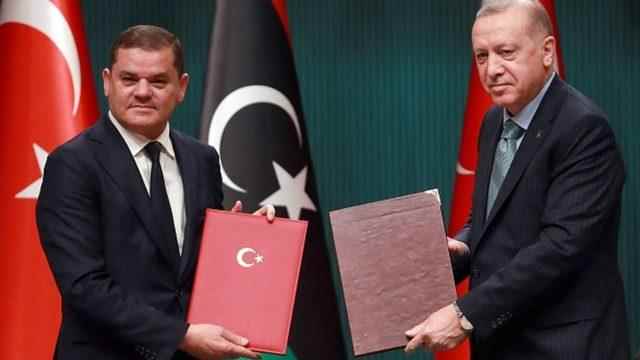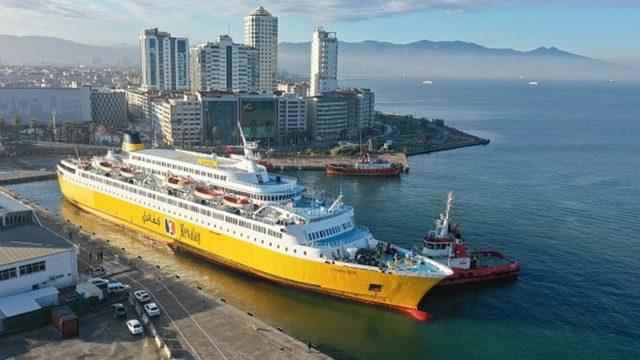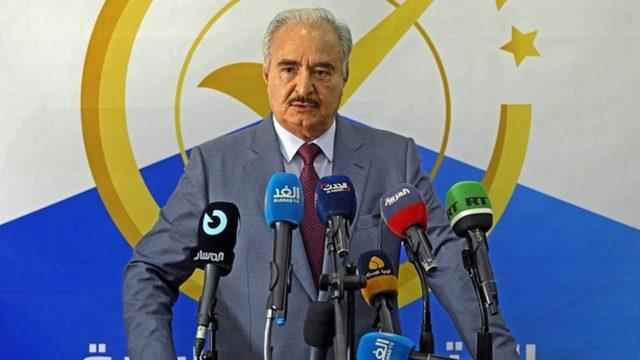BBC Monitoring Service published an article evaluating the approach of Turkey, which is one of the most important actors in the civil war in Libya and the transition process after it, to the elections scheduled for 24 December.
The progress of General Khalifa Haftar, who started a war against the government in Tripoli with the support of Russia, Egypt, the United Arab Emirates (UAE) and France from his base in the east of the country, stopped when Turkey started to help the Tripoli government; The ceasefire agreement paved the way for the country to enter the transition process in October.
In this process, an interim Government of National Unity and the Presidential Council were formed. However, the dichotomy continues between the House of Representatives in Tobruk in the east of the country and the Tripoli government.
According to the news of the BBC Monitoring Service, Turkey tried to use its military weight and effectiveness in the political arena at this stage.
Today, there are many foreign soldiers and militia forces in Libya, contrary to the ceasefire agreement signed under the leadership of the United Nations (UN). The Turkish military is one of the foreign forces in Libya.
Turkey is not only military in the country; It also has far-reaching economic interests and plans.
Two weeks before the appointed election date, chaos continues in the country, where Russia’s mercenaries, as well as militias from Africa with the support of the UAE and Egypt, are still armed forces.
Call for postponement of elections
The Tripoli-based State Supreme Council announced that it has “launched an initiative” to hold the presidential and parliamentary elections on 24 December in February.
Omar Bushah, the second vice-president of the Council, who held a press conference in Tripoli, said that the list method should be used in the elections; include the President, two Vice-Presidents and the Prime Minister on the list; announced that they demanded that the election be postponed to February in order to make this change:
“Elections in their current form may already be postponed due to the problems faced by the election commission and controversial names being candidates for president.”
Seyfulislam Gaddafi and Khalifa Haftar, son of Libya’s ousted leader Muammar Gaddafi, are also candidates for the presidency in the elections.
A day before this announcement, the parliament in Tobruk announced that it had established a commission to study the obstacles and difficulties encountered in the election process. It is known that deputies in the Tobruk parliament had reports of bribery, nepotism, oppression and bullying in the election process.
Recently, the debates about the candidacy criteria for the presidential elections and the election date have intensified.
Turkey’s approach to the elections in Libya
Ankara, which signed a military and security cooperation agreement with the Tripoli government, which the UN considers legitimate, in November 2019, started its military support in January 2020, right after the agreement. This support resulted in Haftar’s withdrawal and ending the siege of Tripoli in June 2020.
An agreement was also signed between Ankara and Tripoli determining the maritime jurisdiction areas in the Eastern Mediterranean. This agreement is the biggest indicator of the close cooperation between the two countries against the cooperation of other countries in the region.
With these agreements, Turkey has come face to face with Egypt and the UAE, with which it already has problematic relations, in the civil war in Libya.
The main headquarters of the Turkish soldiers still in Libya for the activities described as training and consultancy was the naval base in Misrata and the Vatiyye Air Base. So much so that 25 years later, ship voyages between Misrata and Izmir started this month.
On the other hand, Ankara responds to the UN’s calls for the withdrawal of foreign forces in the country, saying that it will not withdraw unless the forces backed by Russia and the UAE are withdrawn. Ankara also underlines that unlike others, Turkish soldiers are in the country within the framework of a legitimate agreement signed with the Tripoli government.
The Libyan government, on the other hand, seems to have stepped up the steps it took to withdraw all foreign troops from the country during the transition period. The Joint Military Commission, consisting of five commanders from the armed forces of the parties in the civil war, which decided on the ceasefire at the first stage, arrived in Turkey on 2 December; From there he went to Russia and discussed the issue of the withdrawal of foreign powers from the country.
However, this issue, which seems to have reached an impasse, continues to be a question mark on the future of Libya.
Who will Turkey support in the election?

Turkey, in accordance with diplomatic practices, did not openly take sides in favor of any candidate in the election.
However, it is known that he opposed the candidacy of Khalifa Haftar, who was on the opposite side in the civil war, “on the grounds that it was not legitimate”. Ankara also has very close relations with the current Tripoli government’s Prime Minister, Abulhamid Dibeybe. Dibeybe, a businessman from Misrata, is also a candidate for the presidency.
According to the news of the BBC Monitoring Service, the media organs opposed to the government in Libya wrote that Dibeybe’s brother, Ali Dibeybe, is also the owner of a Libyan television channel broadcasting from Turkey. During one of Dibeybe’s many visits to Ankara, his brother Ali Dibeybe was with him.
Fethi Başağa, the Interior Minister of the former government in Tripoli, with which Turkey signed both naval jurisdiction and military cooperation agreements, is one of the Libyan politicians very close to Ankara. He is also a candidate in the presidential election. Başağa from Misrata had visited Ankara many times as a Minister.

Will rapprochement with the UAE affect the position in Libya?
In the article, it is reminded that high-level officials from Turkey, especially Foreign Minister Mevlüt Çavuşoğlu, harshly criticize the UAE’s position in Libya and that it “caused chaos”.
However, after the visit of Abu Dhabi Crown Prince Mohammed bin Zayed, one of the most powerful names in the UAE’s administration, to Ankara on November 24, the tension between the two countries gave way to economic and commercial cooperation.
There are now statements from Turkey that it may renew relations with Egypt and Saudi Arabia. All of these countries have interests in Libya that rival those of Turkey.
The article states that despite these convergences, a new crisis or tension in Libya may adversely affect the fragile rapprochement between these countries and Turkey:
“The fragile electoral process in Libya will have a huge impact on both the country’s citizens and the wider regional political balance.”
